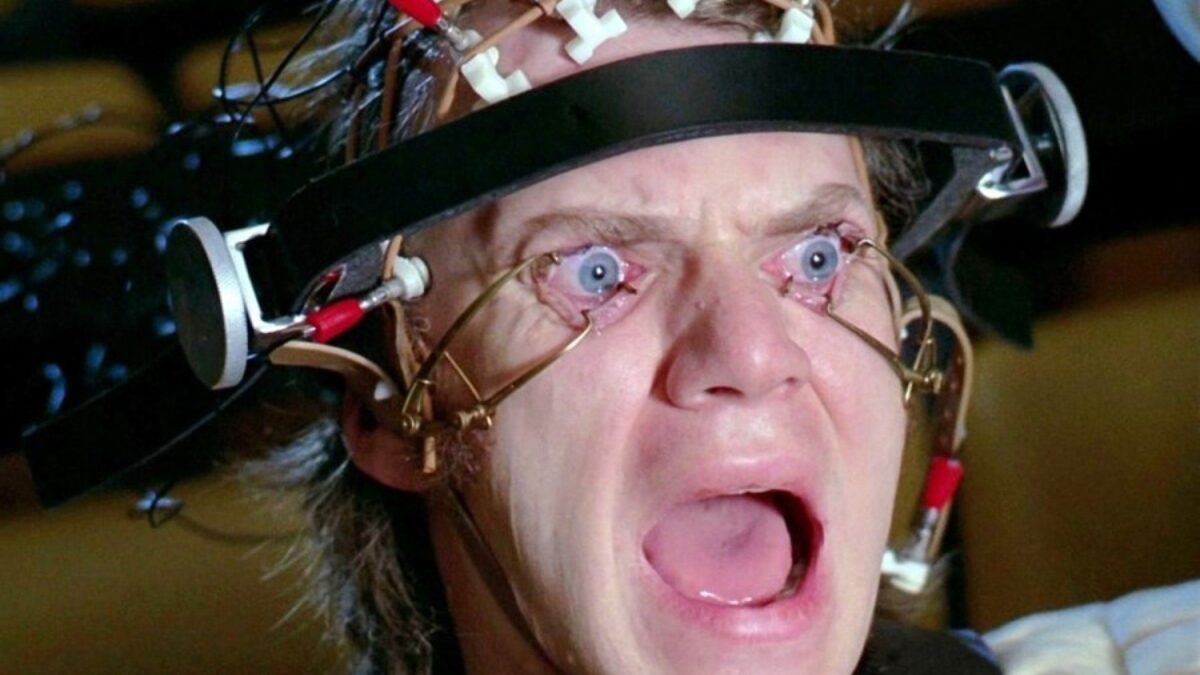
What’s your favorite movie from the decade?
The 1970s were a pivotal decade in the history of cinema, marked by a convergence of factors that resulted in a remarkable era of filmmaking. From the rise of auteur directors to the emergence of the New Hollywood movement, the 1970s saw groundbreaking films that continue to captivate audiences and influence modern cinema.
The era was characterized by social and political relevance, genre innovation, and the talent of visionary filmmakers and actors.
In this article, we will explore why the cinema of the ’70s is heralded as a significant period in film history, examining the key reasons that make it an enduring and celebrated era of filmmaking.
Let’s dive in.
Table of Contents
Why Do We Herald ’70s Cinema as the Hollywood Heyday?
The ’70s were a groundbreaking era in cinema, marked by a unique confluence of factors that resulted in a diverse and influential body of work. The decade saw the emergence of socially relevant and thought-provoking films that reflected the cultural and political climate of the time. Filmmakers tackled issues such as the Vietnam War, civil rights, gender roles, and the disillusionment with the American Dream.
Technological advancements also played a significant role in shaping Hollywood in the ’70s. The introduction of new filmmaking techniques, such as the use of handheld cameras, naturalistic lighting, and on-location shooting, added a sense of realism and authenticity to films. Moreover, the development of new sound technologies, such as Dolby Stereo and Dolby Surround, revolutionized the way films were experienced in theaters, enhancing the overall cinematic experience.
The 1970s also witnessed a shift in the portrayal of characters and stories on the big screen. Antiheroes and complex, flawed protagonists became prominent, providing a departure from traditional archetypes.
The economic landscape of Hollywood in the 1970s also underwent significant changes. The era saw the decline of the traditional studio system, with independent production companies gaining traction and challenging the dominance of major studios. This gave rise to a more diverse range of voices and stories in Hollywood, providing opportunities for underrepresented filmmakers and actors.
The 1970s were a dynamic and transformative era in Hollywood, marked by artistic freedom, social relevance, technological advancements, and shifting industry dynamics. The films of this decade pushed the boundaries of storytelling and challenged traditional norms, leaving a lasting impact on the trajectory of American cinema.
The legacy of the 1970s can still be seen in the films of today, with its influence continuing to shape the landscape of Hollywood and inspire filmmakers and audiences alike.
Reasons Why the Cinema of the 1970s is Heralded
The ’70s are widely heralded as a golden era for American cinema, producing an exceptional body of films that continue to captivate audiences to this day. During this decade, Hollywood experienced a creative renaissance, marked by groundbreaking storytelling, innovative filmmaking techniques, and bold social commentary.
The ’70s saw the emergence of a new generation of filmmakers who challenged traditional norms and pushed the boundaries of cinema, resulting in a remarkable collection of influential and enduring movies.
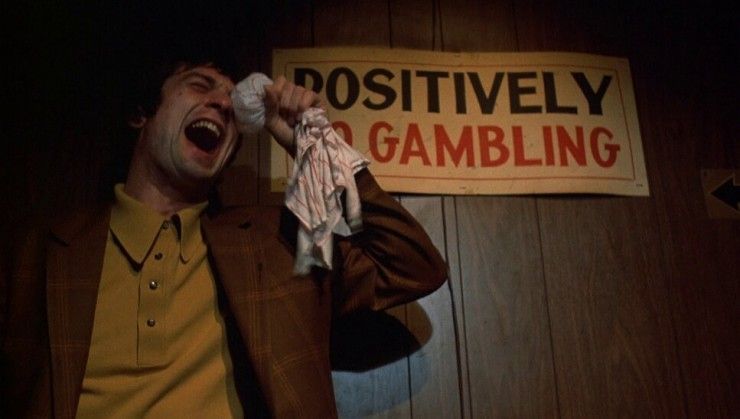
Auteur Filmmaking
The ’70s witnessed the rise of the auteur filmmaker, who had significant creative control over their films and used the medium as a form of personal expression. Directors such as Martin Scorsese, Francis Ford Coppola, Steven Spielberg, Stanley Kubrick, and others emerged during this era, creating films that were highly distinctive in terms of their visual style, thematic depth, and storytelling techniques.
These directors were known for their bold and uncompromising visions, and their films were often characterized by complex characters, gritty realism, and an exploration of the human condition. The auteur filmmakers of the ’70s pushed the boundaries of traditional filmmaking, challenging conventions and creating a new wave of cinema that was highly influential and groundbreaking.
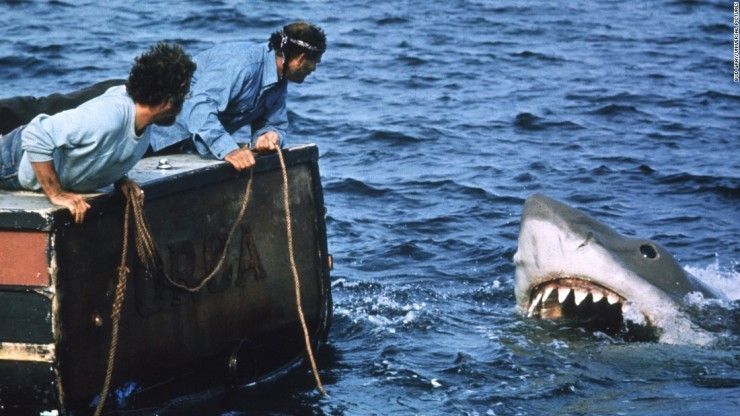
The New Hollywood Movement
The ’70s marked a departure from the traditional studio system in Hollywood, with the emergence of the New Hollywood movement. This movement was characterized by a shift towards more unconventional and daring films that were edgier, riskier, and often explored controversial subject matter.
Filmmakers of the New Hollywood era were known for their independent spirit and a desire to break away from the formulaic studio system, resulting in a wave of films that were highly innovative and challenging. These films often dealt with complex themes, such as anti-establishment sentiments, disillusionment, and existentialism, and reflected the changing social landscape of the time. Films like Easy Rider, Five Easy Pieces, Mean Streets, and Chinatown are considered iconic examples of the New Hollywood era, and they continue to be celebrated for their artistic and cultural significance.
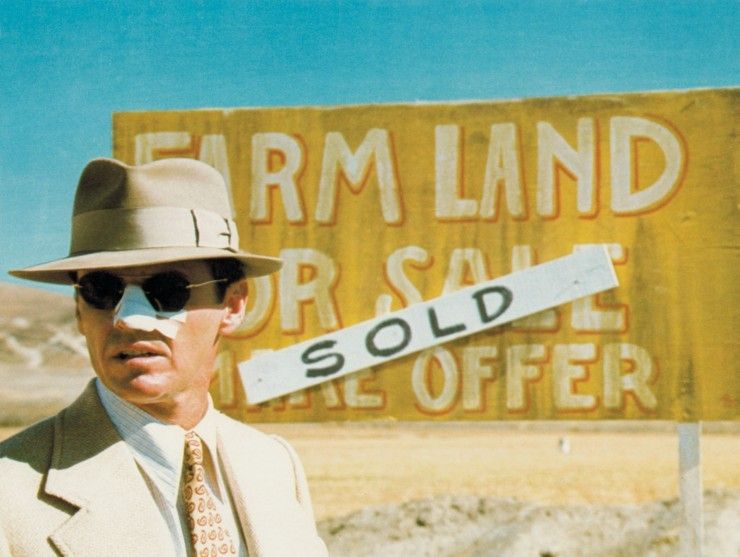
Social and Political Relevance
The ’70s were a time of great social and political change, and this was reflected in the films of the era. Filmmakers of the time often used their films as a platform to address important social and political issues of the time, such as civil rights, feminism, the Vietnam War, the Watergate scandal, and the counterculture movement.
These films offered thought-provoking commentaries on the state of society and challenged the status quo, providing a lens through which audiences could engage with the pressing issues of the era.
Films like One Flew Over the Cuckoo’s Nest, which explored the corrupt and dehumanizing mental health system, All the President’s Men, which delved into the investigation of the Watergate scandal, and Network, which critiqued the sensationalism of the media, are considered powerful examples of the social and political relevance of ’70s cinema.
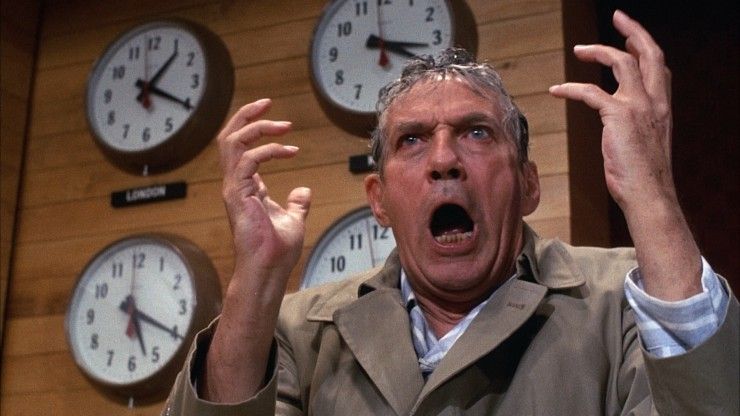
Genre Innovation
The 1970s saw significant innovation in various film genres, with filmmakers pushing the boundaries of traditional genre conventions and introducing fresh storytelling techniques. For instance, crime films like The Godfather and Taxi Driver delved into the dark and gritty underworld of organized crime, presenting complex characters and morally ambiguous narratives.
Horror films like The Exorcist and Halloween redefined the horror genre with their innovative use of suspense, atmosphere, and psychological terror.
Science fiction and fantasy films like Star Wars and A Clockwork Orange challenged conventional notions of genre storytelling with their visionary visions, unconventional narratives, and visual effects. The ’70s saw a renaissance of genre filmmaking.
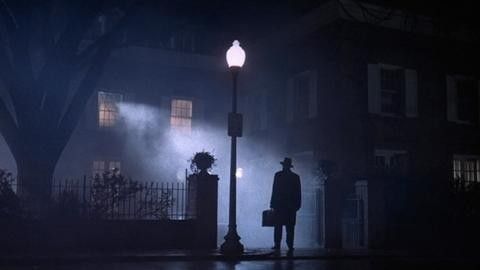
Acting and Filmmaking Talent
The ’70s saw the emergence of several talented actors and filmmakers who left a significant mark on cinema. Actors such as Robert De Niro, Al Pacino, Meryl Streep, and Jack Nicholson rose to prominence during this era, delivering powerful and memorable performances that are still revered today. Additionally, many renowned directors, writers, and cinematographers who had a lasting impact on the art of filmmaking emerged in the ’70s.
The combination of auteur filmmaking, the New Hollywood movement, social and political relevance, genre innovation, and talented actors and filmmakers make the cinema of the 1970s a distinctive and influential period in film history and a reason why it is heralded and remembered by film enthusiasts and critics alike.

Some of the Most Important Movies of the 1970s
The 1970s was a decade that produced several groundbreaking and influential films across various genres. Here are some of the most important movies of the 1970s that left a lasting impact on cinema:
-
The French Connection (1971): Directed by William Friedkin, The French Connection is a gritty crime thriller based on a true story. The film follows two New York City police detectives, played by Gene Hackman and Roy Scheider, as they try to intercept a large heroin shipment from France. Known for its realistic depiction of police work, intense car chase scenes, and Hackman’s electrifying performance, The French Connection won five Academy Awards, including Best Picture, and is considered a landmark film in the crime thriller genre.
-
The Godfather (1972): Directed by Francis Ford Coppola, this epic crime film is often considered one of the greatest films in the history of cinema. Based on the novel by Mario Puzo, The Godfather follows the story of the Corleone crime family, and its themes of family, loyalty, and the American Dream resonated with audiences and critics alike. It won three Academy Awards, including Best Picture, and remains a landmark film in American cinema.
-
The Godfather: Part II (1974): Directed by Francis Ford Coppola, The Godfather Part II is a crime film and the sequel to the highly acclaimed The Godfather. The film continues to follow the Corleone crime family as it expands its empire and delves into the backstory of Vito Corleone, played by Robert De Niro, and his rise to power. Known for its complex narrative structure, powerful performances, and masterful direction, The Godfather Part II won six Academy Awards, including Best Picture, and is considered one of the greatest sequels in cinema history.
-
The Exorcist (1973): Directed by William Friedkin, The Exorcist is a horror film based on William Peter Blatty’s novel of the same name. The film follows the demonic possession of a young girl and the attempts of a priest, played by Max von Sydow, to save her. Known for its terrifying visuals, intense performances, and groundbreaking practical effects, The Exorcist is considered one of the scariest films of all time and a milestone in horror cinema.
-
Star Wars (1977): Directed by George Lucas, Star Wars, retroactively titled Star Wars: Episode IV – A New Hope, is a science fiction epic that became a cultural phenomenon and redefined the genre. With its groundbreaking visual effects, memorable characters, and epic space opera storytelling, Star Wars became a global phenomenon and spawned a highly successful franchise that continues to be influential in popular culture.
-
One Flew Over the Cuckoo’s Nest (1975): Directed by Milos Forman, this drama film based on the novel by Ken Kesey is a powerful exploration of the oppressive mental health system. Starring Jack Nicholson as Randle McMurphy, a rebellious patient in a mental institution, the film delves into themes of freedom, individuality, and institutionalized oppression. It won five Academy Awards, including Best Picture, and is considered a classic of American cinema.
-
Taxi Driver (1976): Directed by Martin Scorsese, Taxi Driver is a gritty and dark portrayal of a mentally unstable Vietnam War veteran, played by Robert De Niro, who becomes a taxi driver in New York City. The film explores themes of alienation, violence, and the decay of society, and is known for its powerful performances, atmospheric cinematography, and Scorsese’s distinctive directorial style.
-
A Clockwork Orange (1971): Directed by Stanley Kubrick, this dystopian crime film based on the novel by Anthony Burgess is a controversial and thought-provoking exploration of human nature, morality, and free will. The film follows the story of a violent and sociopathic young man named Alex, played by Malcolm McDowell, and his journey through a futuristic and oppressive society. A Clockwork Orange is known for its bold and provocative themes, unique visual style, and Kubrick’s meticulous direction.
-
Jaws (1975): Directed by Steven Spielberg, Jaws is a landmark film that defined the modern blockbuster. The film follows the story of a great white shark that terrorizes a small beach town, and its suspenseful storytelling, iconic score, and groundbreaking visual effects set a new standard for the thriller genre and established Spielberg as a master filmmaker.
-
Rocky (1976): Directed by John G. Avildsen, Rocky is a sports drama film that tells the story of an underdog boxer, played by Sylvester Stallone, who gets a chance to fight for the heavyweight championship of the world. The film’s rags-to-riches narrative, memorable characters, and inspirational themes of perseverance and determination resonated with audiences, and it became a successful franchise that continues to be influential in the sports genre.
-
Apocalypse Now (1979): Directed by Francis Ford Coppola, Apocalypse Now is a war film loosely based on Joseph Conrad’s novella, Heart of Darkness. The film depicts the horrors of the Vietnam War and explores the madness and darkness of human nature. Known for its visually stunning and immersive storytelling, Apocalypse Now is considered a masterpiece of American cinema.
-
Chinatown (1974): Directed by Roman Polanski, Chinatown is a neo-noir mystery film that follows a private investigator, played by Jack Nicholson, as he uncovers a conspiracy involving water rights in Los Angeles. The film is known for its complex plot, memorable performances, and Polanski’s skillful direction, and it is considered one of the greatest films of the 1970s.
-
Annie Hall (1977): Directed by Woody Allen, Annie Hall is a romantic comedy-drama that broke new ground with its unconventional storytelling and innovative structure. The film follows the ups and downs of a neurotic comedian, played by Woody Allen, and his tumultuous relationship with a quirky aspiring singer, played by Diane Keaton. Annie Hall won four Academy Awards, including Best Picture, and is regarded as a landmark film in American cinema.
-
Network (1976): Directed by Sidney Lumet, Network is a satirical dark comedy-drama that depicts the ruthless world of television news media. The film follows a disillusioned news anchor, played by Peter Finch, who goes on a rant on live television, leading to unexpected consequences. Network is known for its biting social commentary, sharp writing, and outstanding performances, and it won four Academy Awards, including Best Actor for Peter Finch.
-
Alien (1979): Directed by Ridley Scott, Alien is a groundbreaking science fiction horror film that redefined the genre. The film follows a crew of astronauts who encounter a deadly extraterrestrial creature on a distant planet. Alien is known for its innovative visual effects, intense atmosphere, and strong female protagonist, played by Sigourney Weaver, and it spawned a successful franchise that continues to be influential in the science fiction genre.
-
Dog Day Afternoon (1975): Directed by Sidney Lumet, Dog Day Afternoon is a crime drama film based on a true story. The film follows a bank robbery gone awry and the ensuing hostage situation in Brooklyn, New York. Starring Al Pacino and John Cazale, the film is known for its raw and intense performances, realistic depiction of urban life, and Lumet’s masterful direction. Dog Day Afternoon received critical acclaim and is considered a classic of American cinema.
-
Close Encounters of the Third Kind (1977): Directed by Steven Spielberg, Close Encounters of the Third Kind is a science fiction film that explores the idea of human contact with extraterrestrial beings. The film follows a group of people who experience a close encounter with a UFO and become obsessed with understanding the phenomenon. Known for its awe-inspiring visuals, memorable score, and Spielberg’s masterful storytelling, Close Encounters of the Third Kind is considered a classic in the science fiction genre.
-
The Deer Hunter (1978): Directed by Michael Cimino, The Deer Hunter is a war drama film that depicts the psychological effects of the Vietnam War on a group of friends from a small Pennsylvania town. Starring Robert De Niro, Christopher Walken, and Meryl Streep, the film is known for its powerful performances, realistic depiction of the horrors of war, and Cimino’s bold direction. The Deer Hunter won five Academy Awards, including Best Picture, and is considered a landmark film that explores the human toll of war.
-
Halloween (1978): This classic horror film is widely considered one of the most influential and iconic movies of its genre. Directed by John Carpenter, who also co-wrote the screenplay with Debra Hill, Halloween tells the story of Michael Myers, a deranged killer who escapes from a mental institution and returns to his hometown to terrorize a group of babysitters on Halloween night.
-
Nashville (1975): A critically acclaimed satirical musical comedy-drama film directed by Robert Altman. It is widely regarded as one of the most significant films of the 1970s and a hallmark of Altman’s distinctive style. Nashville is known for its complex narrative structure, sprawling ensemble cast, and innovative use of overlapping dialogue, which became a trademark of Altman’s filmmaking
These are just a few examples of the many important movies of the ’70s that had a significant impact on cinema and continue to be celebrated for their artistic merits and cultural significance. The films of the ’70s pushed the boundaries of traditional storytelling, challenged conventions, and reflected the changing social and political landscape of the time, leaving a lasting legacy in cinema history.

Summing Up Why We Herald ’70s Cinema as the Hollywood Heyday
The cinema of the ’70s remains a cherished period in film history, renowned for its bold and innovative approach to storytelling, its reflection of social and political issues, and the immense talent of its filmmakers and actors.
The auteur directors, the New Hollywood movement, the genre-defining films, and the powerful performances continue to inspire and influence contemporary cinema.
The legacy of ’70s cinema lives on, as these films continue to captivate audiences and be celebrated for their artistic merits and cultural impact. From crime dramas to sci-fi epics, the cinema of the 1970s has left an indelible mark on the history of cinema, and its significance and reverence among film enthusiasts and critics endure to this day.
Let me know what you think of this era in Hollywood in the comments.














